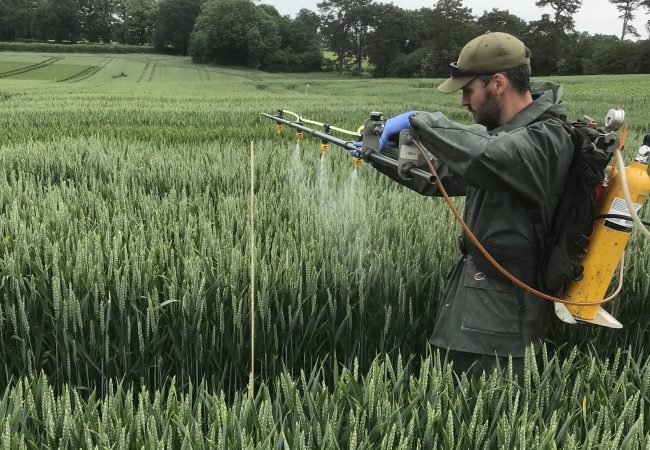
Sugar signalling applications could boost wheat yields by up to 12%
Long term study confirms effectiveness of new technology Enhancing wheat plants ’ sugar signalling ability could deliver increased yields of up to 12%, according to researchers from Rothamsted, Oxford University and the Rosalind Franklin Institute. That is an order of…

Professor Ben Davis awarded 2025 Claude S Hudson Award
Congratulations to Professor Ben Davis who has received the 2025 Claude S Hudson Award, presented by the American Chemical Society (ACS). The Hudson Award is presented biennially by the ACS Division of Carbohydrate Chemistry & Chemical Glycobiology (CARB), committed to advancing the field…

Ben Davis
University of Oxford Ben Davis got his B.A. (1993) and D.Phil. (1996) from the University of Oxford. During this time he learnt the beauty of carbohydrate chemistry under the supervision of Professor George Fleet. He then spent two years as…
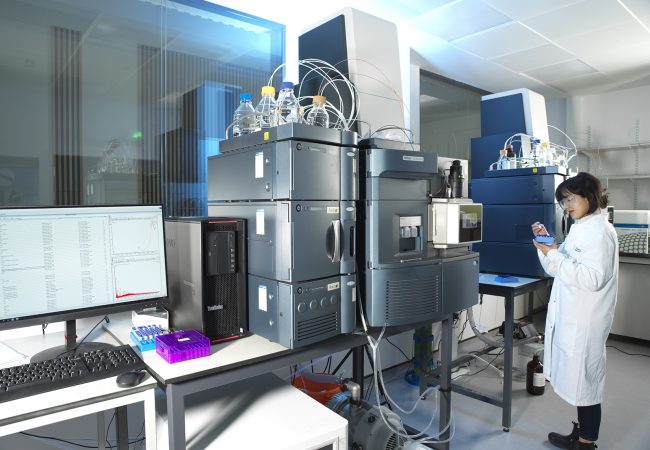
Mechanistic Proteomics
Proteins are the workhorses of living cells. Proteins operate in a highly dynamic environment interacting with other proteins and other types of molecules including sugars, lipids and nucleic acids.
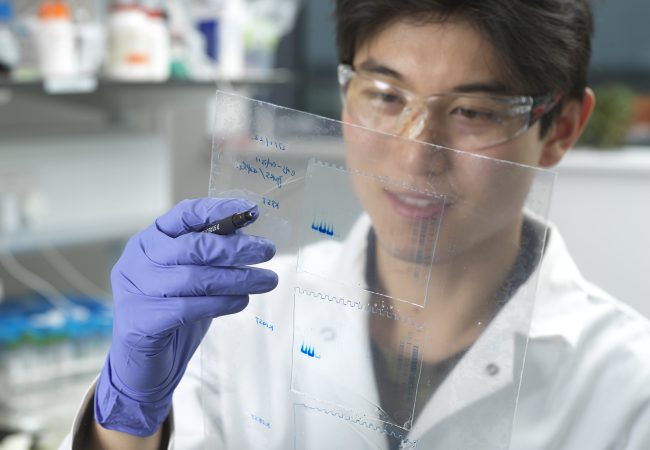
Strategic labelling approaches to understand proteins in action
Researchers at The Rosalind Franklin Institute are developing methods to post-translationally edit proteins so they can start to unpick biological mechanisms in living cells.

Bringing chemistry to life to treat rare diseases
Scientists in the Next Generation Chemistry theme at the Franklin are part of an international academic-industry consortium to accelerate the development of nucleic acid therapeutics.
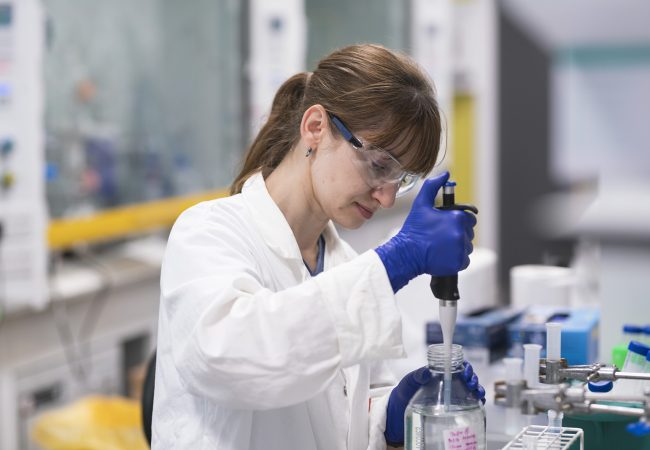
Piecing together a puzzle in protein damage
Working with colleagues in the UK and USA, researchers at the Franklin have helped solve a 20-year-old mystery surrounding an ‘orphan’ family of proteins called LanCLs.

Discovery of new Covid infection mechanism offers clue to SARS-CoV-2 leap to humans
One of the best-known aspects of the Covid-19 pandemic is that the virus ‘jumped’ into people from animals – perhaps bats or pangolins – in a process known as zoonotic transfer. What hasn’t been clear to scientists is exactly how,…

Fast Spectroscopy
We study how light can trigger changes in biomolecules to activate biological functions using different spectroscopic methods.
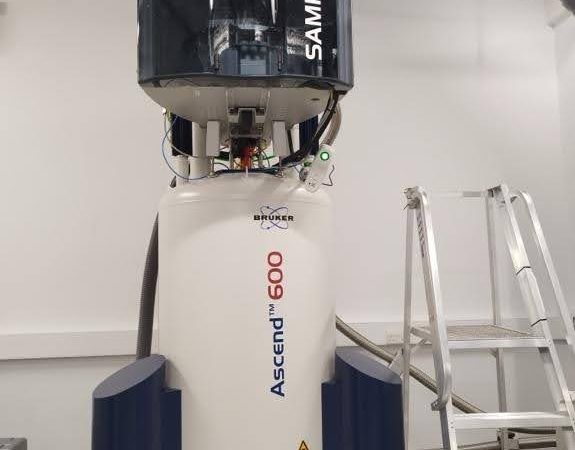
Nuclear Magnetic Resonance (NMR)
NMR spectroscopy is the only experiment that gives combined structural and dynamical information of molecules at atomic resolution, in solution. It is widely used for routine characterisation of molecules and is vital for chemical analysis.
